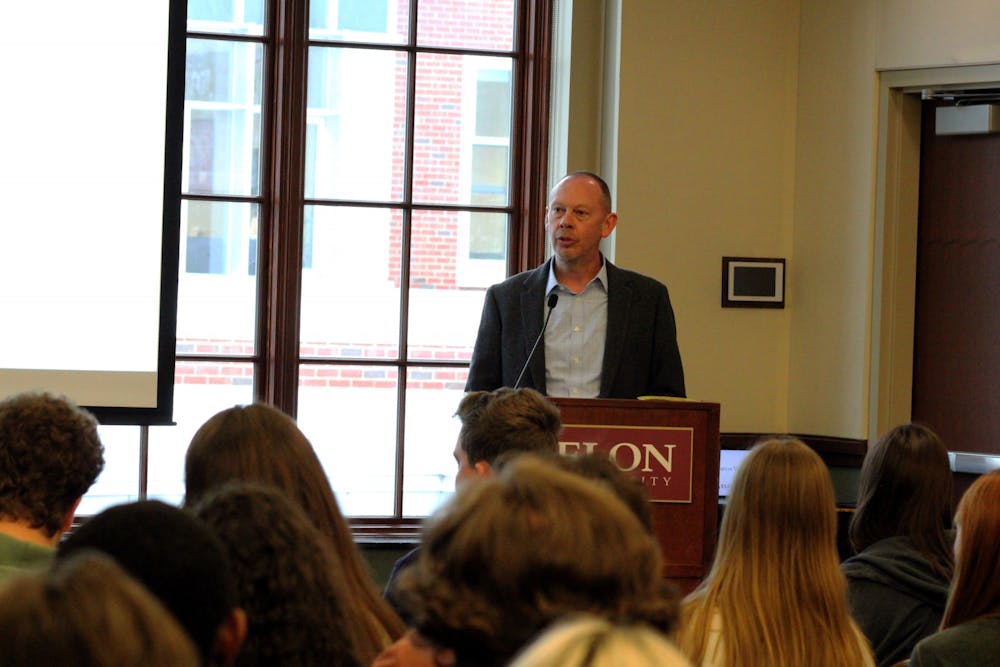The number of mass shootings throughout the country drove many of the interactive conversations at Elon University’s Active Citizen Series deliberative dialogue, “How Should We Prevent Mass Shootings in Our Communities?” Feb. 27.
Since the dialogue was first planned four months ago, community and school shootings have only increased into the new year — 94 mass shootings have been reported in 2023 as of Feb. 28, according to the Gun Violence Archive. The discussions were partly led by a guide from the National Issues Forums Institute on How Should We Prevent Mass Shootings in Our Communities, with students, faculty, staff and community members sharing additional ideas for prevention and exchanging views.
For sophomore Elon Votes coordinator Bo Dalrymple, attending this dialogue was one way to remind others that it’s important to prepare for any situation in the community. Dalrymple said preparation starts with face-to-face conversations.
“The recent headlines have shown that a conversation like this is something that we really do need to have and start thinking about and educating ourselves and hopefully working towards a solution,” Dalrymple said. “Those sorts of instances show that they can happen here. They can happen anytime. They're not based on a place or a person. They can happen anywhere.”
In the breakout sessions, group conversations discussed mental health resources, reporting structures on campus when it comes to care and concern, and what local and national governments should invest in to prevent mass shootings.
Bob Frigo, assistant dean of Campus Life and director of the Kernodle Center for Civic Life, said this deliberative dialogue invited some of the most powerful conversations he’s listened to. This semester had an attendance of over 70 students, faculty, staff and community members.
Chief of Campus Safety & Police Joe LeMire was also in attendance of the dialogue and said it’s important to have these conversations and be prepared if there is an active shooter on campus.
“We're trained to go out and deal with it,” LeMire said. “We have the tools we need. We have the equipment we need. We have everything that we need. Some of it was based on Uvalde and we took some of that to heart and improved our equipment.”
The university adopted the “Avoid. Deny. Defend” method for the community to follow for if there were to be an active shooter on campus. This method specifically comes from the Advanced Law Enforcement Rapid Response Training Program at Texas State University, which has been used to train law enforcement officers across the nation. Campus Safety & Police provides a special training video to the university related to the threat of an active shooter on campus.
LeMire said while it’s important to be cautious always, the university police department is confident in their staff and is prepared.
The deliberative dialogue also allowed everyone to share other challenges they see in society related to mass shootings and search for common ground for action.
“We come to these sorts of things with our own vision and what we think is right and wrong, but there's a lot in between,” Dalrymple said. “There's a lot within that blurred line, and so hopefully after today we will take on some new perspectives.”


